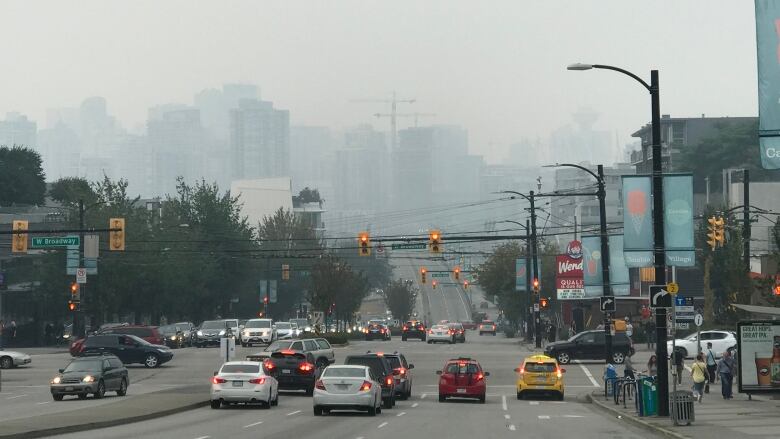Why air pollution apps may be misleading
An app estimated that people in Vancouver were being exposed to pollution equivalent to 8 cigarettes a day

For the past several days, air quality has been top of mind for many across B.C., as wildfires burning across the province have made for smoky skies and poor air quality.
The air quality health risk hit the highest rating in someareas on Monday, reaching a 10+ rating, meaning the health risk is very high and there are high concentrations of fine particulate matter, also known as PM2.5,in the air.
Many, including radio stations, turned to a mobile app that estimates the effects of current air pollution on people.
A few days ago, the app estimated that people in Vancouver were breathing in particulate matter akinto smoking eight cigarettes per day.
But those estimates may be overstated.
The app leaves the impression that it can compare one form of particulate matter to another, but it doesn't.
It is based on science done by Robert Muller, a University of California-Berkeley physicistin a paper he co-wrotewhere he estimates 4,400 people die everyday from air pollution
"It's likely that not allPM2.5 is equally dangerous," said Muller.
He says the science of how dangerous fine particulate matter from forest fires is has not been done.
AmauryMartini created the app a few years ago.He was inspired to build it after living in Beijing.
"Weactually say inour app, it's an estimate," said Martini.
"We cannot talk about thefull equivalent between particulates you inhale with cigarettes and air pollution.The study is based not on particulates themselves but on the health effects," he said.
He says he's going to rejig it when there's better data, which he said BerkeleyUniversity scientists are working on.
With files from Yvette Brend.












_(720p).jpg)


 OFFICIAL HD MUSIC VIDEO.jpg)
.jpg)



























































































